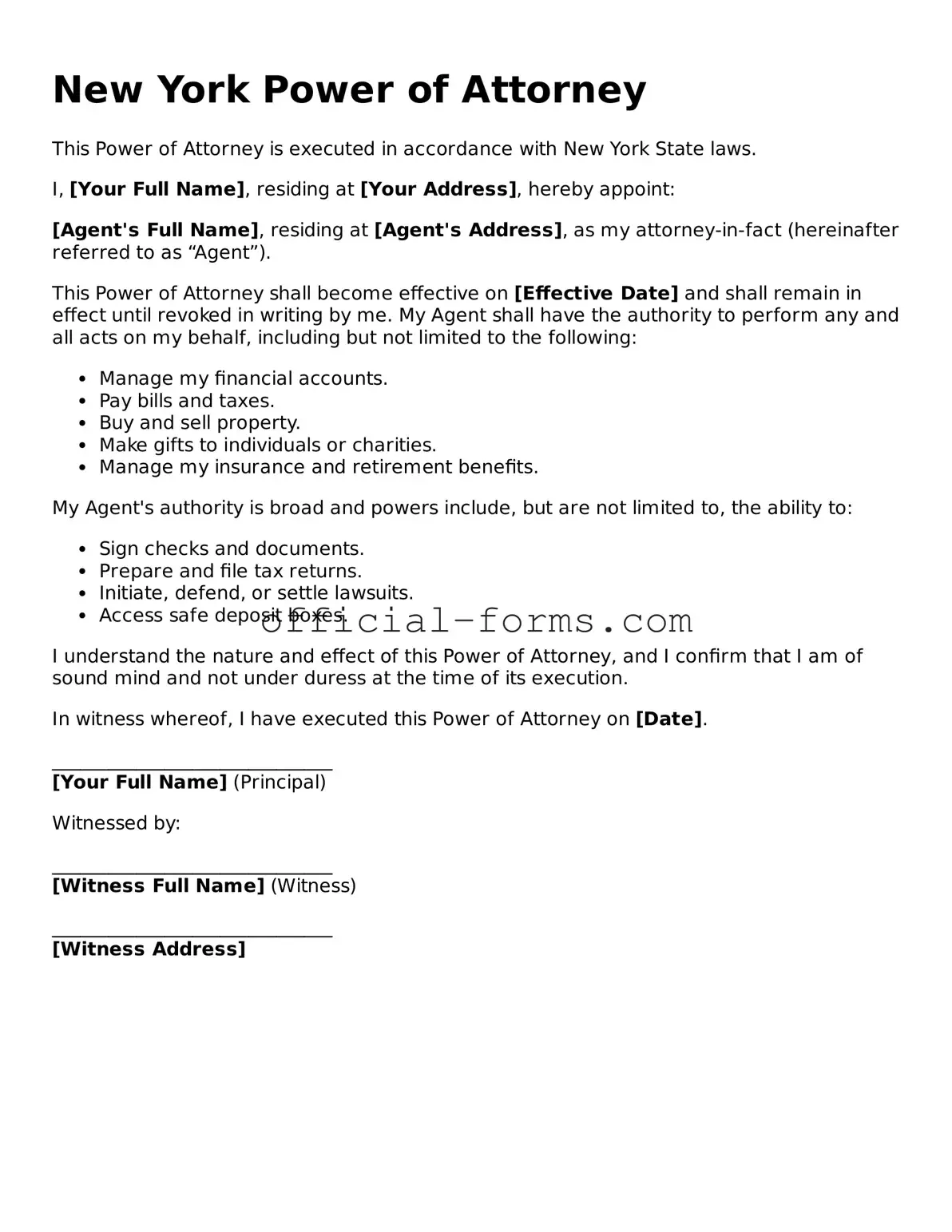Filling out a Power of Attorney (POA) form in New York can be a straightforward process, yet many individuals make common mistakes that can lead to complications. One prevalent error is failing to specify the powers granted to the agent. Without clear definitions, the agent may not have the authority to act in certain situations, leaving the principal vulnerable.
Another frequent mistake is neglecting to date the document. A missing date can create confusion regarding the validity of the POA. In legal matters, timing is crucial, and an undated form might be questioned in a court setting, potentially rendering it ineffective.
Some individuals forget to include a notary public’s signature. In New York, a Power of Attorney must be notarized to be legally binding. Without this important step, the document may not hold up in legal proceedings, which can lead to significant issues when the agent attempts to act on behalf of the principal.
Additionally, people often overlook the requirement for witnesses. New York law mandates that the signing of the POA be witnessed by at least one individual. Failing to adhere to this requirement can invalidate the document, leaving the principal without the intended protections.
Another mistake is not providing a clear identification of the agent. It's essential to include the full name and address of the individual designated to act on one’s behalf. Ambiguities in identifying the agent can lead to disputes or confusion about who is authorized to act.
Some may also neglect to consider alternate agents. Life is unpredictable, and having a backup agent ensures that there is someone available to act if the primary agent is unable or unwilling to fulfill their duties. This oversight can create gaps in representation when it is needed most.
It is not uncommon for individuals to fail to review the form thoroughly before submission. Small errors, such as typos or incorrect information, can have significant implications. A careful review can catch these mistakes and prevent future complications.
Another error involves not discussing the POA with the agent beforehand. Open communication about the powers being granted and the expectations can help avoid misunderstandings and ensure that the agent is prepared to take on the responsibilities.
People sometimes mistakenly believe that a Power of Attorney is a permanent document. However, it can be revoked at any time, provided the principal is mentally competent. Failing to understand this can lead to confusion about the authority of the agent.
Lastly, individuals may not seek legal advice when necessary. While it is possible to complete a Power of Attorney form independently, consulting with a legal professional can provide valuable insights and help prevent errors that could compromise the document’s effectiveness.

